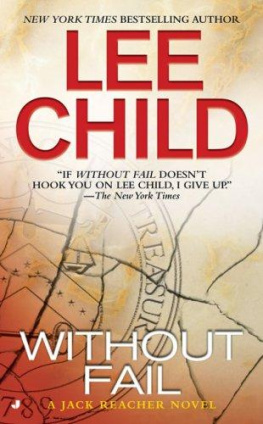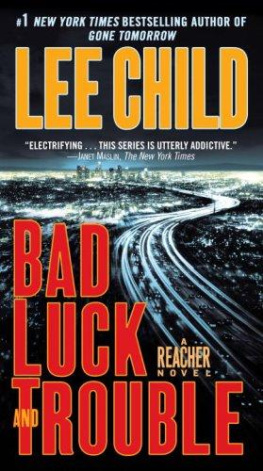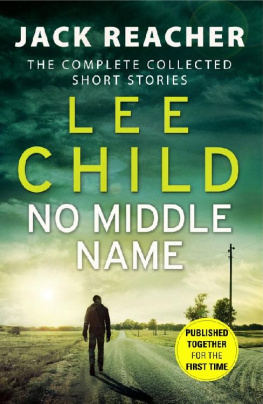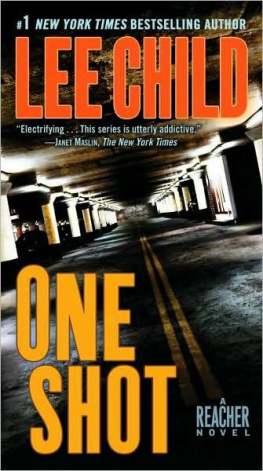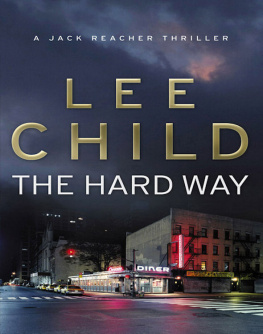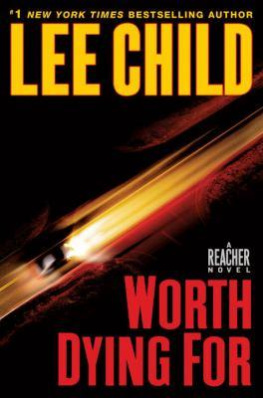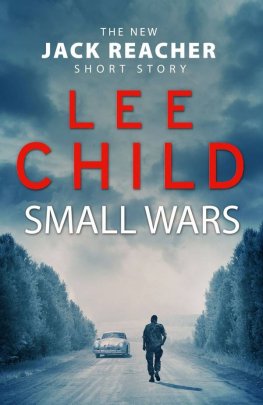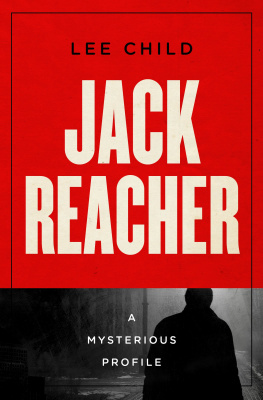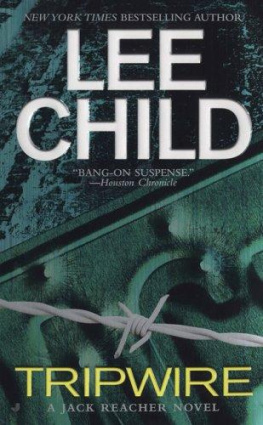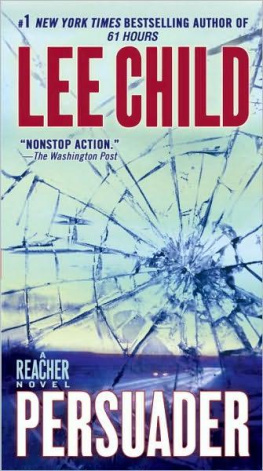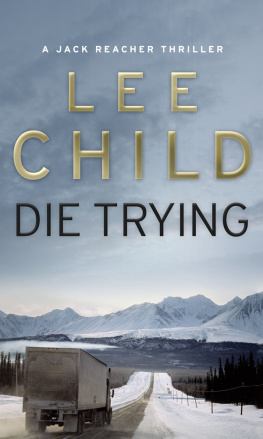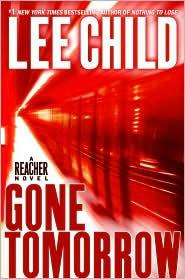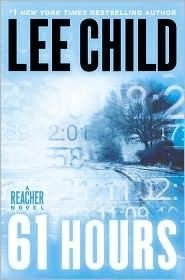Lee ChildWithout Fail
ONE
They found out about him in July and stayed angry allthrough August. They tried to kill him in September. Itwas way too soon. They weren't ready. The attempt wasa failure. It could have been a disaster, but it wasactually a miracle. Because nobody noticed.
They used their usual method to get past security andset up a hundred feet from where he was speaking.
They used a silencer and missed him by an inch. Thebullet must have passed right over his head. Maybeeven through his hair, because he immediately raisedhis hand and patted it back into place as if a gust ofwind had disturbed it. They saw it over and over again,afterward, on television. He raised his hand and pattedhis hair. He did nothing else. He just kept on with hisspeech, unaware, because by definition a silencedbullet is too fast to see and too quiet to hear. So itmissed him and flew on. It missed everybody standingbehind him. It struck no obstacles, hit no buildings. Itflew on straight and true until its energy was spent andgravity hauled it to earth in the far distance where therewas nothing except empty grassland. There was noresponse. No reaction. Nobody noticed. It was like thebullet had never been fired at all. They didn't fire again.
They were too shaken up. So, a failure, but a miracle.
And a lesson. They spent October acting like theprofessionals they were, starting over, calming down,thinking, learning, preparing for their second attempt. Itwould be a better attempt, carefully planned andproperly executed, built around technique and nuanceand sophistication, and enhanced by unholy fear. Aworthy attempt. A creative attempt. Above all, an attemptthat wouldn't fail.
Then November came, and the rules changed
completely. Reacher's cup was empty but still warm. Helifted it off the saucer and tilted it and watched thesludge in the bottom flow toward him, slow and brown,like river silt.
"When does it need to be done?" he asked.
"As soon as possible," she said.
He nodded. Slid out of the booth and stood up.
"I'll call you in ten days," he said.
"With a decision?"
He shook his head. "To tell you how it went."
"I'll know how it went."
"OK, to tell you where to send my money."
She closed her eyes and smiled. He glanced down ather.
"You thought I'd refuse?" he said.
She opened her eyes. "I thought you might be a littleharder to persuade."
He shrugged. "Like Joe told you, "I'm a sucker for achallenge. Joe was usually right about things like that.
He was usually right about a lot of things."
"Now I don't know what to say, except thank you."
He didn't reply. Just started to move away, but shestood up right next to him and kept him where he was.
There was an awkward pause. They stood for a secondface to face, trapped by the table. She put out her handand he shook it. She held on a fraction too long, andthen she stretched up tall and kissed him on the cheek.
Her lips were soft. Their touch burned him like a tinyvoltage.
"A handshake isn't enough," she said. "You're goingto do it for us." Then she paused. "And you were nearlymy brother-in-law."
He said nothing. Just nodded and shuffled out frombehind the table and glanced back once. Then heheaded up the stairs and out to the street. Her perfumewas on his hand. He walked around to the cabaretlounge and left a note for his friends in their dressingroom. Then he headed out to the highway, with tenwhole days to find a way to kill the fourth-best-protectedperson on the planet. It had started eight hours earlier,like this: team leader M. E. Froelich came to work on thatMonday morning, thirteen days after the election, anhour before the second strategy meeting, seven daysafter the word assassination had first been used, andmade her final decision. She set off in search of herimmediate superior and found him in the secretarial penoutside his office, clearly on his way to somewhere else,clearly in a hurry. He had a file under his arm and adefinite stay back expression on his face. But she tooka deep breath and made it clear that she needed to talkright then. Urgently. And off-the-record and in private,obviously. So he paused a moment and turned abruptlyand went back inside his office. He let her step in afterhim and closed the door behind her, softly enough tomake
the
unscheduled
meeting
feel
a
little
conspiratorial, but firmly enough that she was in nodoubt he was annoyed about the interruption to hisroutine. It was just the click of a door latch, but it wasalso an unmistakable message, parsed exactly in thelanguage of office hierarchies everywhere: you betternot be wasting my time with this.
He was a twenty-five-year veteran well into his final lapbefore retirement, well into his middle fifties, the lastecho of the old days. He was still tall, still fairly lean andathletic, but graying fast and softening in some of thewrong places. His name was Stuyvesant. Like the lastDirector-General of New Amsterdam, he would saywhen
the
spelling
was
questioned.
Then,
acknowledging the modern world, he would say: likethe cigarette. He wore Brooks Brothers every day of hislife without exception, but he was considered capableof flexibility in his tactics. Best of all, he had never failed.
Not ever, and he had been around a long time, withmore than his fair share of difficulties. But there hadbeen no failures, and no bad luck, either. Therefore, inthe merciless calculus of organizations everywhere, hewas considered a good guy to work for.
"You look a little nervous," he said.
"I am, a little," Froelich said back.
His office was small, and quiet, and sparsely furnished,and very clean. The walls were painted bright white andlit with halogen. There was a window, with white verticalblinds half closed against gray weather outside.
"Why are you nervous?" he asked.
"I need to ask your permission."
"For what?"
"For something I want to try," she said. She wastwenty years younger than Stuyvesant, exactly thirty-five. Tall rather than short, but not excessively. Maybeonly an inch or two over the average for Americanwomen of her generation, but the kind of intelligenceand energy and vitality she radiated took the wordmedium right out of the equation. She was halfwaybetween lithe and muscular, with a bright glow in herskin and her eyes that made her look like an athlete. Herhair was short and fair and casually unkempt. She gavethe impression of having hurriedly stepped into herstreet clothes after showering quickly after winning agold medal at the Olympics by playing a crucial role insome kind of team sport. Like it was no big deal, like shewanted to get out of the stadium before the television
Next page 
